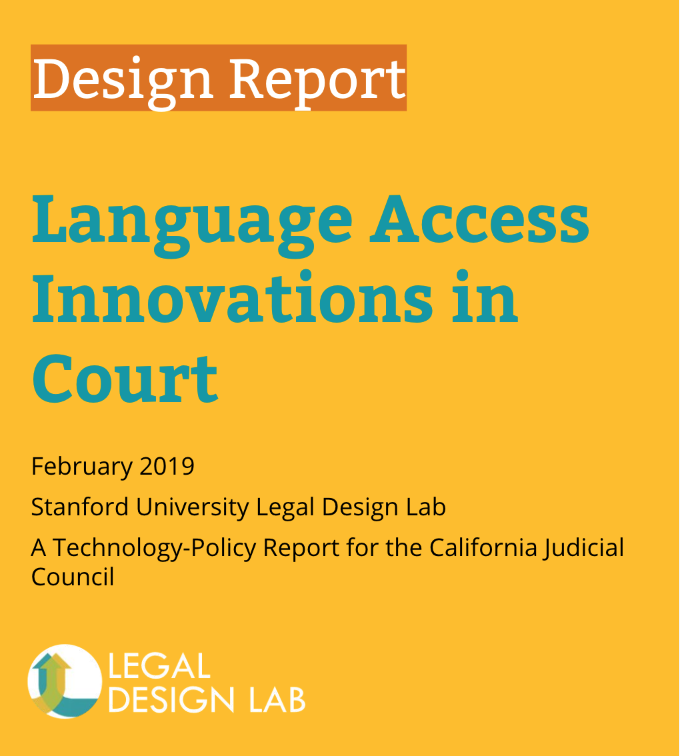Design for Justice: Language Access
When a person must go to court to deal with a divorce, eviction, or credit card debt, or myriad other actions, the justice system can be difficult to navigate without professional help. It’s even more challenging for those who are not proficient in English. In recognition of California’s linguistic diversity – with over 200 languages spoken – the courts have made ‘language access’ a priority for innovation.
This policy practicum works closely with California state courts to research, design, and test new strategies for making courts accessible to all people, regardless of language or cultural background. The research team works directly with court staff, users, and other stakeholders to create new tech-based and human-centered services that can reduce barriers to the justice system.
Students will gain experience in design research, prototyping new technologies on-site at court, and building strategies for innovation in the government.
As courts decide which technologies and programs best support access, this design research project serves as a lab to test, refine, and advise the California Judicial Council on effective means to improve access to the courts for diverse linguistic populations. The final deliverables include an evaluation of existing language access technologies based on user testing and on-site evaluations, a proposal of a fuller pilot, and policy recommendations for how courts can prioritize language and cultural inclusion in their innovation investments.
Pre-requisites: We strongly encourage applicants with language skills in Spanish, Russian, Vietnamese, Mandarin, Farsi, and beyond. Much of our work will involve working with people with limited English proficiency, and different language skills will be highly valued.
Clients & Deliverables

- Client: California Judicial Council
- Deliverables: Policy report, proposal for pilot program, oral briefing
